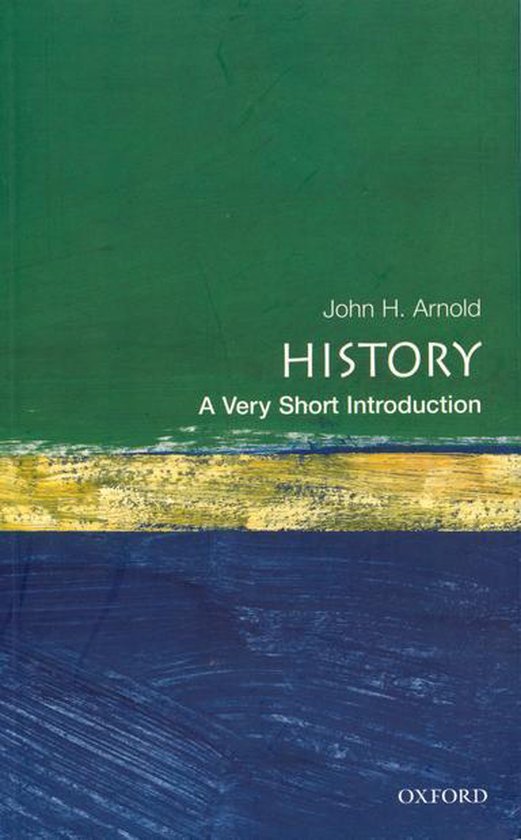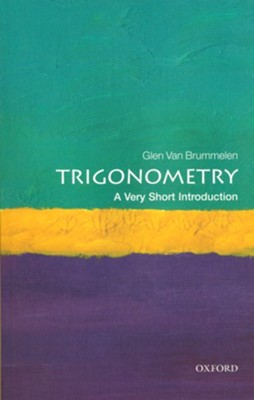ABOUT THE SERIES: The Very Short Introductions series from Oxford University Press contains hundreds of titles in almost every subject area. These pocket-sized books are the perfect way to get ahead in a new subject quickly. Viewing lists of titles on Very Short Introductions. Click on the link to browse the full list of all titles currently in Very Short Introductions. The list of titles can be refined by subject using the filter on the left hand side. You can also browse to each subject area using the drop down menu at the top of the screen.
- Very Short Introduction Oxford Complete
- Very Short Introduction Oxford Complete Works
- Oxford Very Short Introduction List
Oxford's Very Short Introductions series offers concise and original introductions to a wide range of subjects - from Public Health to Buddhist Ethics, Soft Matter to Classics, and Art History to Globalization. Each volume provides an authoritative and engaging assessment of a concept, field, or body of work, drawing out the central ideas, themes, and approaches. Our expert authors combine facts, analysis, new insights, and enthusiasm to make often challenging topics highly readable to develop your core knowledge. With over 700 titles and many more in development, as well as regularly updated new editions, the series is constantly evolving to reflect a contemporary readership. Whatever your area of study, whatever the topic that fascinates you, the series is an indispensable and accessible guide that will enrich your understanding.
'The Very Short Introductions range from worth reading to wonderfully appealing... Much of the pleasure to be found in them is the bedrock one of good nonfiction: facts... They appeal to us because the world is vast and strange, because everywhere we look, from the firefly flashing in the darkness to Auden's elegy for Yeats, there is something to provoke our curiosity, some sliver of existence that we want to understand.' - New Yorker Magazine
'I have a pile of the Short Introductions and they are uniformly excellent: an ideal way to dip your toe in a topic and, being relatively cheap, allow you to decide whether invest in more expensive tomes. They're well written by leaders in their area, thought-provoking and insightful.' - Mark Greener, Fortean Times
'I absolutely LOVE the VSI series. It's just so well produced - excellent writing and interesting topics. Just a superb overall series to dive into.' - Grrl Scientist, The Guardian
'I love the Very Short Introduction Series as should everyone who is interested in the history of ideas. They manage to straddle that difficult line between making the complex accessible without ever compromising on quality. The sheer range of subjects covered make the series an invaluable asset for anyone trying to understand the development of human thought. They are a must-go-to gateway for those of us keen to know more but needing a steer as to where to start.' - Claire Fox, Director, Institute of Ideas
'The Oxford University Press VSI series... is to non-fiction what Penguin Books have always been for literature. - Jim Cullen, History News Network'
'Expert, concise but far from bland, Oxford's Very Short Introductions series must rank by now as a thinking reader's Wikipedia' - Boyd Tonkin, The Independent
'Great price, beautifully designed and produced, authoritative content and inviting subjects covered - if only all publishing hit these heights.' - The Bookseller
'a fascinating series of 'all you need to know' introductions by experts to complex topics.' - The Times
'The Very Short Introductions are fantastically informative books...' - Big Issue in the North
'I am addicted to this series of pocket-portable introductory lectures.' - Guardian Review
'These Very Short Introductions have a style and integrity all of their own.' - Scotsman
'A thoroughly good idea. Snappy, small format ... stylish design ... perfect to pop in your pocket for spare moments' - The Times
'A series of instantly accessible handbooks that neither shame our ignorance nor frighten us with their erudition. All are to be applauded.' - Oxford Times
'If there's anything you ever wanted to know more about ... grab yourself one of these little beauties.' - Sarky Cutt, Greenwich University
'These perfect books form a solid grounding in various subjects, stretching from the Bible and the Koran, to Social and Cultural Anthropology ... interesting, informative and concise, they combine to make a beautiful set. They will broaden your studies, widen your knowledge and maybe give you a chance of winning those pub quizzes once in a while!' - The Beaver, LSE
'Would make a useful addition to any bookshelf, and their size makes them ideal for carrying around' - Humanist Philosophers Group
'Attractively packaged and, very importantly these days ... attractively priced. They are the sort of books that can be read in a couple of evenings but repay further study.' - The Philosophers Review
'Always invigorating' - Independent on Sunday
| WikiProject Books | (Rated Start-class) | ||||
|---|---|---|---|---|---|
| |||||
| WikiProject University of Oxford | (Rated Start-class) | |||||||
|---|---|---|---|---|---|---|---|---|
| ||||||||
Advertisement? List? Noteworthy?[edit]
I don't see how this is any more of an 'advertisement' than any of the other semi-gushing articles on book series in Wikipedia. Sure, it's promoting them, but just writing an article is promoting it in a sense. Again, look at any of the others and explain to me how they're different. BTW, I wrote the original article and I'm not on the payroll of Oxford. Revolver 05:35, 29 January 2006 (UTC)
Of course it's an advertisement. This 'article' is exactly like a page in the OUP catalog. *Why* you want to write ads or free catalog copy for OUP if you're not on their payroll is a different question. —Preceding unsigned comment added by 70.20.206.111 (talk) 02:42, 15 November 2010 (UTC)
I found this page very useful in a non-promotional way. Specifically, the fact that the British history VSIs are from the Oxford Illustrated History (of which there is a much newer edition), and that the Past Masters ones are 20-30 years old. --50.100.52.181 (talk) 16:03, 18 October 2014 (UTC)
It would be good if this page had more information about authors and how this body of work came together. I had a cursory look at it and it does seem that this is a very commercially focused product. It's too bad. it's a really great idea as a collection of work. Nimming (talk) 00:03, 19 November 2014 (UTC)
I actually find this page very helpful since this is the only place (besides the list on Goodreads [here], which has some mistakes) where I can see all the numbering and the 'previously published as'. I corrected some of the new titles, but the numbering after 425 (Plate Tectonics) still needs further confirmation. Zen Light (talk) 14:29, 6 August 2015 (UTC)

- Where are these numbers being sourced from? Neither the web or print publication dates listed on the OUP site match up with the ones in this article. 2602:306:C4CB:4B40:9AFC:11FF:FECD:BFAC (talk) 15:12, 22 March 2016 (UTC)
- Every book has a number printed on its spine, which is unfortunately not listed on the official website. Some titles also have the complete numbered list published so far printed at the very end, which you can find on Amazon preview or google book preview. Zen Light (talk) 07:34, 3 March 2017 (UTC)
I agree that this page very helpful. Maybe, though, we should make a separate List-class article for all the volumes and then an article about the series. More than 400 items is a lot to put in the body of an article. Pages about television shows with only a few dozen episodes have separate pages to list them. --StringRay (talk) 04:24, 9 August 2015 (UTC)
This article on a product is unsourced, other than to the producer. The producer happens to be an august publisher; if it weren't for this, there probably would have already been calls either (A) to demonstrate noteworthiness via independent commentary or (B) to delete. So where's the independent commentary? -- Hoary (talk) 23:11, 26 September 2017 (UTC)
15 October 2017 - An editor called Aureliano Babilonia has helpfully removed these two notices. However the article remains a bit of a stub compared to what it could be, especially with the extra commentaries/sources that are available. I will add a note about this below, under 'Additional sources'. Michael Hampson (talk) 09:31, 16 October 2017 (UTC)
VSI 60 ((William) Shakespeare)[edit]
The original VSI 60 was Germaine Greer's Shakespeare. (I found it a disappointment, not really fitting the VSI concept. Having been carried forward from the Past Masters series, it analysed Shakespeare as a philosopher, and assumed detailed familiarity with all the plays.)
There is a new book in the series, William Shakespeare, by Stanley Wells (much more in line with the VSI concept, giving some background and biography and introductions to all the main works).
Having cleverly avoided duplication of titles ('Shakespeare' versus 'William Shakespeare'), OUP then re-uses the series *number* 60, evicting Germaine Greer from the numbered canon. I do not know of this happening to any other title. Perhaps it explains the oddly-worded (presumably computer-generated) note at the top of OUP's VSI page today: 'There are 519 primary works and 518 total works in the Very Short Introductions Series'.
Of course both of these books should be listed here on the Wikipedia main page. I'll let others decide how. Or anyone brave enough can just go ahead and do it.
Here's a photograph of the spines of both books: https://s3-eu-west-1.amazonaws.com/michaelhampson.co.uk/VSI60.jpg
Michael Hampson, 23 September 2017
- Thank you. Yes, I just went ahead and did it.
- I wonder whether an article on this series is merited. (See below.) If it is merited, I wonder whether the list within it is merited. If the list is merited, it seems odd to me that ISBNs aren't provided. Anyway, I've provided them for this pair as the reader might find them particularly helpful.
- Your photograph VSI60 is of interest. I'm no copyright expert but I think that it would not violate the copyright of either OUP or the designer(s) of the covers. If you uploaded it to Wikimedia Commons, it could be used here. -- Hoary (talk) 23:11, 26 September 2017 (UTC)
- Go right ahead if you wish to use it. I took the picture, so I have the right to say that I waive all rights. https://s3-eu-west-1.amazonaws.com/michaelhampson.co.uk/VSI60.jpg - Michael Hampson, 28 September 2017
- Thank you for the friendly gesture, but this would not work. You can upload it yourself. This is likely to be a frustrating experience; but when you've done it once, the second and subsequent uploads become routine and easy.
- A commonsense reaction would be 'Oh FFS, this humdrum photo took mere seconds to set up. It has no artistic or other distinction. Anyone could have taken it. So if you want it, stop wasting my time and add it already.' I'd sympathize. But common sense and copyright law are related only tenuously, if at all. -- Hoary (talk) 22:35, 28 September 2017 (UTC)
Very Short Introduction Oxford Complete
- https://commons.wikimedia.org/wiki/File:VSI60.jpgMichael Hampson (talk) 16:08, 11 October 2017 (UTC)
Additional sources and potential expansion of article[edit]
The article has been tidied up, and two of the three notices have been removed (thankyou to those responsible, October 2017), but as a result it has become a bit of a stub (ie very short, appropriately or not), and still relies heavily on OUP sources. Might someone like to go ahead and expand it using these additional sources (and any others that anyone can suggest)? This would deal with a whole range of criticisms: stub, noteworthiness, single source, advertisement etc - and could justify the removal of the one remaining notice. Michael Hampson (talk) 09:39, 16 October 2017 (UTC)
- The New Yorker (dated 16 October 2017): https://www.newyorker.com/magazine/2017/10/16/how-to-be-a-know-it-all
- The BBC: http://www.bbc.com/capital/story/20170825-an-easy-way-to-read-more-each-year
- Eye Magazine from 2003: http://www.eyemagazine.com/opinion/article/the-learning-brand-50
- History Today magazine in November 2009 https://www.questia.com/magazine/1G1-212105782/a-fairly-short-introduction-to-very-short-introductions
- Oxford Today magazine: http://www.oxfordtoday.ox.ac.uk/news/2016-07-03-very-short-introductions-very-big-success-it-presents-its-500th-subject
- The Bookseller magazine https://www.thebookseller.com/news/oups-very-short-introductions-hit-400
- And finally ... US Supreme Court Judge Chief Justice John Roberts reads them for pleasure: https://www.usnews.com/news/politics/articles/2017-06-30/chief-justice-says-pop-references-can-help-convey-message
- Michael Hampson (talk) 09:39, 16 October 2017 (UTC)
External links modified[edit]
Hello fellow Wikipedians,
I have just modified one external link on Very Short Introductions. Please take a moment to review my edit. If you have any questions, or need the bot to ignore the links, or the page altogether, please visit this simple FaQ for additional information. I made the following changes:
- Added archive https://web.archive.org/web/20131224101632/http://ukcatalogue.oup.com/product/academic/series/general/vsi/9780199590599.do?sortby=pubDateAscend&page=32&thumbby=10&thumbby_crawl=10 to http://ukcatalogue.oup.com/product/academic/series/general/vsi/9780199590599.do?sortby=pubDateAscend&page=32&thumbby=10&thumbby_crawl=10
When you have finished reviewing my changes, you may follow the instructions on the template below to fix any issues with the URLs.
This message was posted before February 2018. After February 2018, 'External links modified' talk page sections are no longer generated or monitored by InternetArchiveBot. No special action is required regarding these talk page notices, other than regular verification using the archive tool instructions below. Editors have permission to delete these 'External links modified' talk page sections if they want to de-clutter talk pages, but see the RfC before doing mass systematic removals. This message is updated dynamically through the template {{sourcecheck}}(last update: 15 July 2018).
- If you have discovered URLs which were erroneously considered dead by the bot, you can report them with this tool.
- If you found an error with any archives or the URLs themselves, you can fix them with this tool.

Cheers.—InternetArchiveBot(Report bug) 14:57, 14 December 2017 (UTC)
For Dummies?[edit]
RubyJester has added a 'See Also' section that includes the following two items:
Very Short Introduction Oxford Complete Works

- For Dummies, a similar series of introductory books
- Rough Guides, whose non-travel books also cover culture and science
Discuss!--Michael Hampson (talk) 14:10, 4 April 2019 (UTC)
